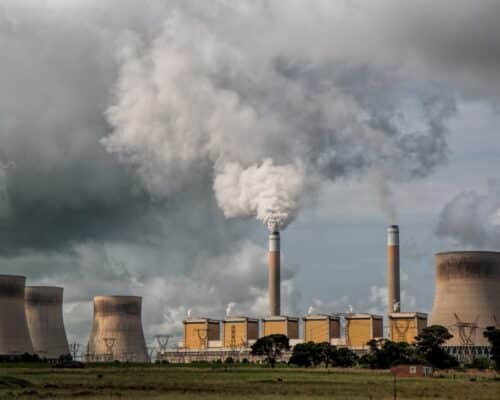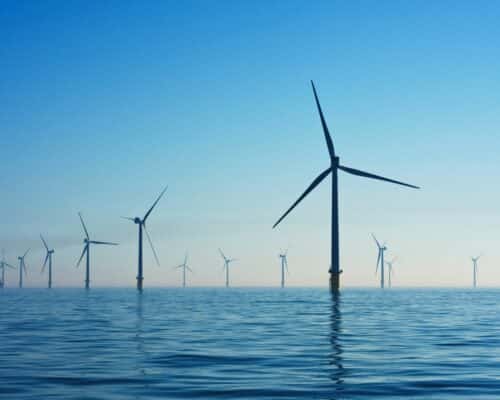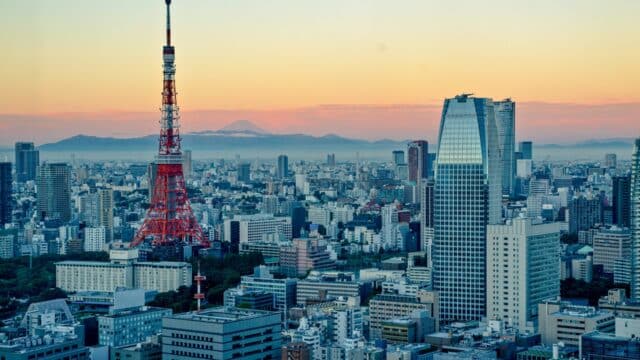Japan’s Coal Obsession
Photo by Aleksey Zhilin from Getty Images
05 May 2022 – by Viktor Tachev
Japan’s coal problem is a sensitive topic that the country’s officials have tried to avoid addressing on numerous occasions. However, the country has now reached a point where taking urgent action is of utmost importance. Japan is among the most carbon-intensive economies globally. However, it has pledged to go net-zero by 2050. The only way to do this is by abandoning fossil fuels and speeding up the adoption of renewable energy. However, the country is having a hard time changing its course.
Japan’s Climate Pledges and Announced Measures
Japan pledged to achieve a 46% cut in emissions by 2030. By that time, non-fossil fuel power supply sources are expected to comprise close to 60% of the country’s energy mix. Renewable energy sources will hold between 36% to 38%.
The country also pledged to become net-zero by 2050. Under the Green Growth Strategy policy framework, Japan will aim for renewables to account for 50% to 60% of the country’s total power generation by 2050, mainly from offshore wind.
Revising Policies on Japan’s Coal-Fired Power Plants
Regarding the energy transition and the switch to cleaner power sources, the government also promised to fundamentally revise existing policies on coal-fired power plants and start promoting the research and development of second-generation solar photovoltaic (PV) and carbon recycling technologies.
During the 2021 G7 summit in the UK, Japan pledged to commit USD 60 billion per year between 2021 and 2025 to tackle the climate emergency. At COP26, it offered to help fund the decarbonisation efforts of developing Asian nations by pledging USD 10 billion in additional overseas climate financing over the next five years.
Japan also vowed to end international coal financing by the end of 2021.
What’s Going on Behind the Scenes – Japan Coal Power Plants
Although the country pledged to end global coal financing, Japan has continued to fund coal power projects. Global Energy Monitor reveals that Japanese government institutions are providing ongoing financial support for coal-fired power plant projects in Indonesia and Bangladesh.
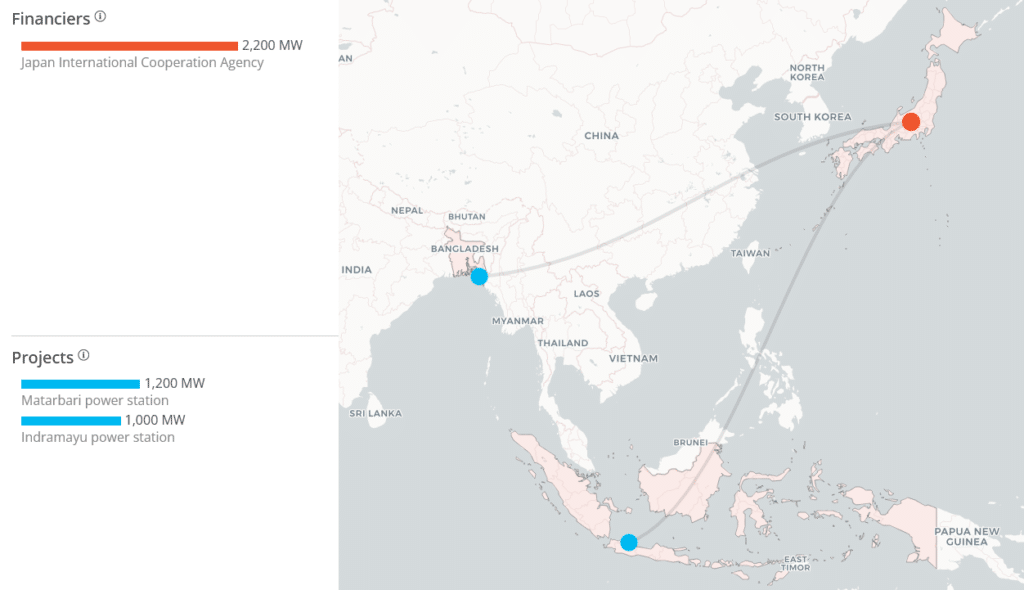
The Matarbari power plant project in Bangladesh is an illustrious example of how committed the Japan International Cooperation Agency (JICA) is to support new coal power plants abroad. Even after the massive withdrawal of contractors and trading houses and the doubts expressed by Bangladesh’s government, JICA remains the sole supporter of the project. More concerning, however, is that the new coal plants units will use an unnecessarily polluting technology that is otherwise banned in Japan’s coal-fired power stations.
On a global scale, Japan remains among the top fossil fuel financers. It is also a driving force for the expansion of gas infrastructure in Asia. According to Fossil Free Japan, the government spends over USD 10 billion a year on public finance for fossil fuels.
The Global Coal Exit List (GCEL) reveals that Japanese banks hold the top 3 positions in the biggest coal industry lenders list. At the same time, Japan’s Government Pension Investment Fund is the fifth-biggest institutional investor in coal.
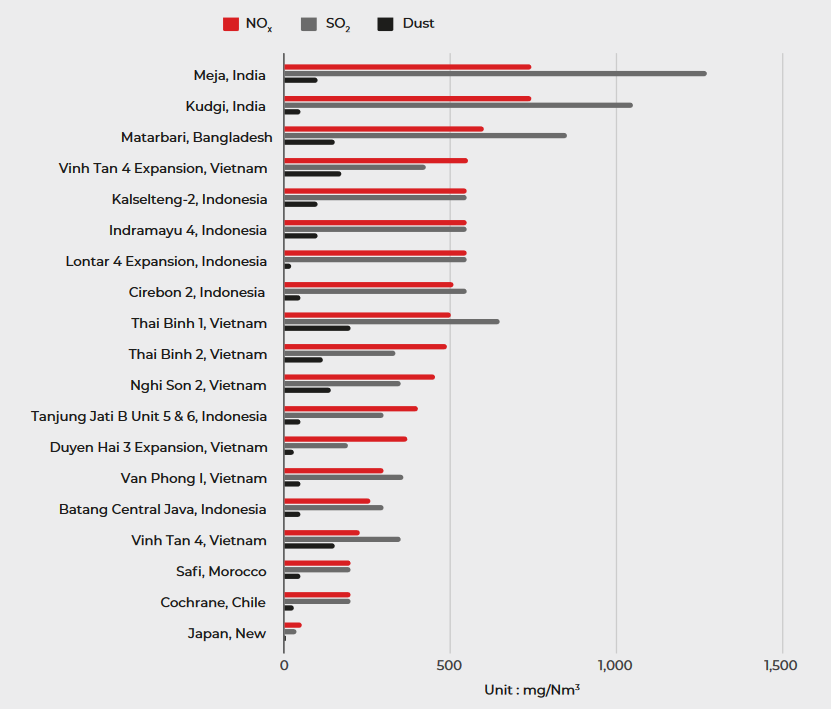
Japan Coal Phase-Out
Japan’s coal obsession also remains evident on a national scale since the country declined to sign the Global Coal to Clean Power Transition Statement agreement. To date, Japan remains the only G7 country not to have agreed on a coal phaseout before 2050.
According to Beyond Coal, 164 coal-fired plants are currently operating, with 8 under construction or in a planning phase. These new coal-fired power plants will increase carbon dioxide emissions and damage carbon capture efforts.
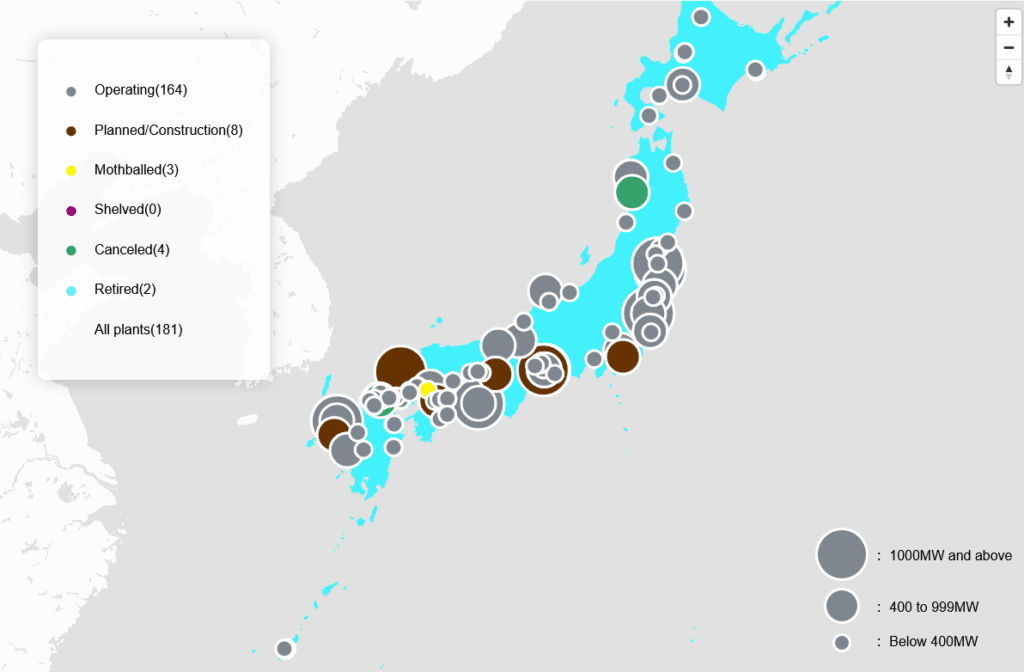
The Implications of Japan’s Coal Problem
Japan’s obsession with coal and fossil fuel is creating various problems.
One problem is that it is eroding the country’s credibility in the eyes of the public. Despite being fully aware of its severe climate impacts, the country has stuck with coal-fired power technology. As a result, Japan’s climate response has lagged far behind the rest of the world.
Japan Coal Imports
Furthermore, Japan has further deepened its energy dependency problem. Today, the country meets nearly 100% of its coal needs with imports, mainly from Indonesia and Australia. The case is no different when it comes to other fossil fuels. Japan relies on imports to meet 96% of its energy needs.
Prolonging the life of its coal plants and pivoting to other high-carbon emissions energy sources, like natural gas and hydrogen-derived ammonia and coal co-firing, at the expense of renewables is distancing Japan from achieving its goals. Additionally, it has strengthened its status as the top fossil fuel supporter in the G20.
According to projections, to stay on track with the global 1.5°C goal, Japan should phase out coal power plants by 2030.
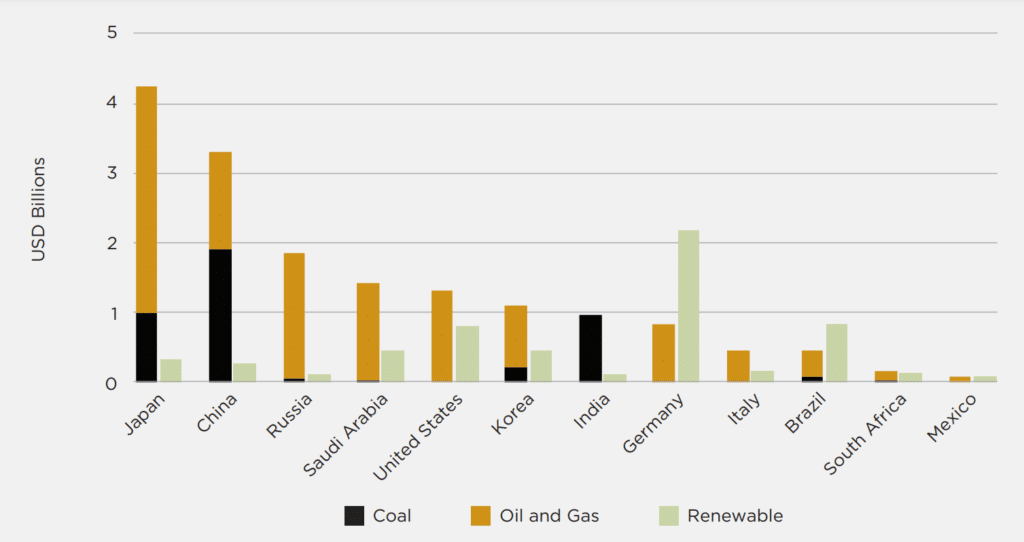
Addressing Japan’s Coal and Fossil Fuel Obsession
Japan is an island country and one of the most affected by climate change. As such, the country should be gravely concerned about the rising global temperatures. The country should not be exacerbating climate change impacts by pouring billions into fossil fuel financing. Instead, the country should advocate for change and promote increased renewables adoption at home and abroad. These actions would benefit the country itself and the international community.
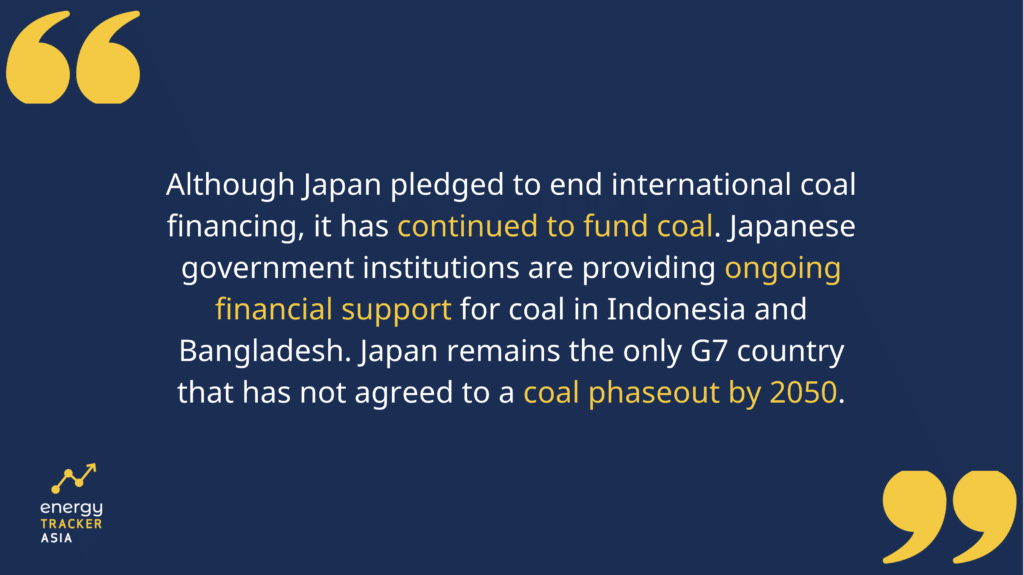
by Viktor Tachev
Viktor has years of experience in financial markets and energy finance, working as a marketing consultant and content creator for leading institutions, NGOs, and tech startups. He is a regular contributor to knowledge hubs and magazines, tackling the latest trends in sustainability and green energy.
Read more